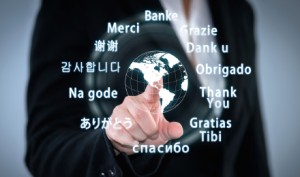Tag: legal translations
Morningside Relies on In-Country Translators

Morningside relies on expert, professional translators to prepare our clients’ technical and legal translations. We also require that the translator be a native speaker of the target language (the language the document is being translated into). Why?
A native speaker has a grasp of linguistic nuances, idioms, terminology, and culture that are vital in preparing an accurate and localized translation. Their larger vocabulary and familiarity with even obscure phrases means they will be far more adept at picking the ideal word or phrase in a given context.
Because knowledge of the target language and culture are so important, Morningside relies on in-country translators for the majority of projects where we are translating from English into a foreign language. This is especially important when translating marketing materials, media content, websites, and other materials where cultural sensitivity is paramount.
Our translators are of course fluent and highly proficient in the source language as well. But the fact that they are native speakers of the target language helps ensure translations that are not only accurate but also correctly convey our client’s message in style and tone and help them to truly reach a global audience.
Get the latest insights delivered to your inbox
Legal Translations

One translation myth we are eager to dispel is that any skilled translator can translate a legal document. Unfortunately, this is about as true as believing that Google Translate can provide an accurate translation. Legal translations are uniquely challenging because they require high-level understanding of specific legal terminology in both the source and target language. Depending on the legal field and the complexity of the subject matter, a legal and/or scientific background is also a must. A legal translation company must also have a thorough understanding of the comparative legal systems that the source and target texts refer to. For example, when translating a Japanese legal document into English for a lawsuit that will be tried in an American court, important issues related to jurisprudence in both countries must be understood. Finally, the legal translation company must be thoroughly experienced and adept at the legal writing style of the target language, which can be very different than the legal writing style in the source language.
If the legal document also employs ideas and terminology relating to a scientific or technical field, then a translator must also have an educational background in that field and extensive experience translating materials in that field. For example, a Chemical patent should only be translated by a legal translator who has an educational background (preferably a Master’s Degree of higher) in Chemistry and significant experience with Chemical document translation.
A legal translator must have both the technical knowledge as well as the legal knowledge to accurately perform a legal document translation. Whether the document deals with patent law, corporate law, international law, or property law, he/she should have a demonstrated mastery of the terminology in both the source and target language.

